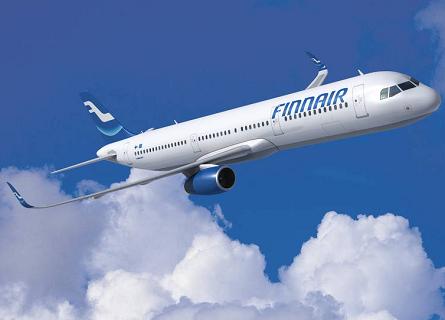Finnair is to ditch an order for two Airbus long-haul jets as part of its tentative agreement to launch the sharklet-equipped A321.
The airline has seven Airbus A330-300s and an eighth will join the fleet at the end of this year.
But while the carrier firmed an option for two more A330s at the end of 2009, the carrier states today that the new deal for five A321s "will replace" an order for two long-haul jets planned for 2012-13.
"As other airlines reduce their capacities it is possible to find aircraft to meet the possible needs of long-haul traffic growth on favourable terms," the carrier adds.
Finnair plans to use its new A321s, which will start arriving in 2013, on long-range routes such as those to the Canary Islands. It says it wants to capitalise on the 2,700nm (5,000km) range the aircraft will offer.
The carrier's decision supports Airbus' belief that the sharklet-equipped A321 is capable of meeting the requirements of carriers looking to replace Boeing 757-200s.
Finnair had seven 757s dedicated to leisure services but opted to cut back the fleet to four this year.
Last year the carrier said it was considering replacing these with Airbus jets as their leases expired, providing further commonality across the Airbus-dominated Finnair fleet.
Finnair says it will replace four 757s with the five A321s, fitted with sharklet wingtips, becoming the launch customer for the modified aircraft. It describes the jet as the 'A321ER', although it is unclear whether this will become a formal Airbus designation. The wingtips, says the airline, are designed to reduce fuel consumption by up to 4%.
 |
|---|
© Airbus |
Chief executive Mika Vehvilainen says the sharklets amount to a "significant jump ahead" in terms of fuel savings, lower maintenance and payload-range improvement.
"The acquisition will standardise the Finnair fleet, allowing long-haul, European and leisure traffic aircraft to be flown by the same crews," adds a Finnair spokesman.
Finnair values the A321 agreement - currently a letter of intent - at over €400 million ($480 million) at catalogue prices. It adds that the new jets will "deliver improved synergy" between its leisure and schedule operations.
Source: Air Transport Intelligence news























